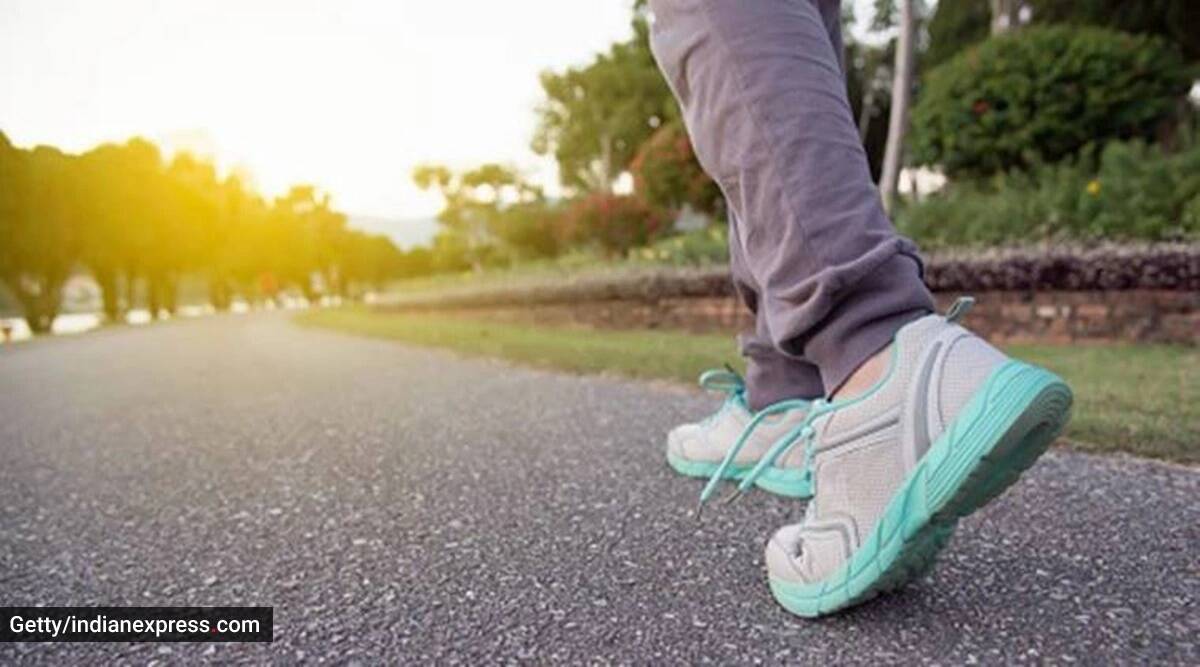[ad_1]
Many of us underestimate or do not realise the importance of staying physically active. But it must be known that moving the body can help us in many ways. Taking to Instagram, Aanchal Khubchandani, ACE-certified personal trainer and nutritionist, shared that one should take to walking regularly as it holds many benefits.
“My main motto here is to tell you about the most underrated exercise of all times,” wrote Khubchandani.
Here’s why it is important
*It will keep you calm
*It will keep you active
*It will help you with weight loss
*It will keep your insulin levels in check
*It will make your body strong
“It holds both mental and physical benefits. So whenever you get time, do at least 10 to 20 minutes of walking in a park, or nearby place. Don’t always be dependent on your vehicle,” she added.
Agreed Dr Shuchin Bajaj, Founder Director, Ujala Cygnus Group of Hospitals and said that walking is a simple and effective way to improve overall health and well-being. “Incorporating walking into your daily routine can offer numerous benefits, both physical and mental,” said Dr Bajaj.
He, too, listed some benefits:
Cardiovascular health: Walking is a great way to improve cardiovascular health by increasing your heart rate and circulation. It can help lower your blood pressure, reduce your risk of heart disease, and improve your cholesterol levels.
Weight management: Walking can help you manage your weight by burning calories and increasing your metabolism. It’s a low-impact exercise that can be done by people of all ages and fitness levels.
Mental health: Walking can have a positive impact on your mental health by reducing stress, anxiety, and depression. It can also improve your mood and boost your energy levels.
Joint health: Walking can be beneficial for people with joint problems, such as arthritis, as it can help reduce stiffness and inflammation in the joints. It can also help improve flexibility and range of motion.
Bone health: Walking can help improve bone density, reducing the risk of osteoporosis and fractures.
Digestive health: Walking can help improve digestion by increasing blood flow to the digestive system and stimulating the muscles in the intestines.
Immune system: Walking can boost the immune system by increasing the production of white blood cells, which helps fight infections and diseases.
How many steps you should cover daily?
Ideally, as we all know we should cover 10,000 steps daily. “If you are the one who is working out daily for one hour, then you should cover 7,000 steps daily,” said Khubchandani.
According to her,
*Walking is good for even people who face joint problems or have arthritis
*Walking is good for every age
Dr Gaurav Jain, senior consultant, internal medicine, Dharamshila Narayana Superspeciality Hospital mentioned that it is recommended that people aim for 10,000 steps every day. “Set a baseline for how many steps you take per day, and then increase by 1,000 each week until you reach your target. Step it up again once you’ve reached 10,000 steps per day. You should be able to increase the pace after a few weeks. A study published in Diabetes Care in 2013 discovered that spurts (interval walking) helped regulate blood sugar levels in persons with type 2 diabetes better than continuous moderate exercise,” Dr Jain said.
How are walking and staying in calorie deficit related?
“While walking helps you lose calories and keeps you fit, one needs to stay in calorie deficit in order to lose weight,” she mentioned.
How to get the best out of your walks?
Walking at a comfortable speed is preferable. The most significant factor in establishing an exercise regimen, including a walking routine, is consistency. “Your focus should, therefore, be on taking frequent walks prior to increasing duration or pace. As your fitness level improves, you will be able to walk faster or farther without much extra effort,” said Varun Rattan, co-founder, The Body Science Academy, Noida.
📣 For more lifestyle news, follow us on Instagram | Twitter | Facebook and don’t miss out on the latest updates!
[ad_2]
Source link

